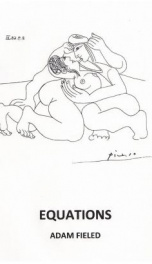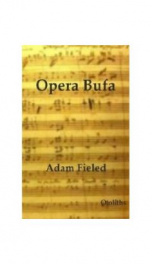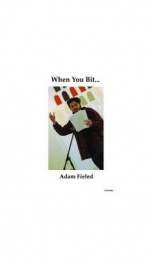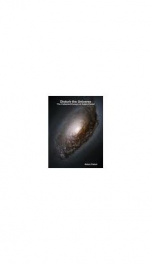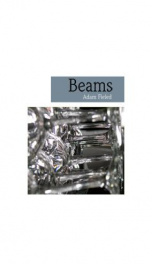Mike Begnal on “Equations” from B’Fhiu An Braon Fola (2012-2013): For more than a decade now, certain critics and writers have declared postmodernism at an end, perhaps most famously Linda Hutcheon, who writes in The Politics of Postmodernism, 2nd ed. (2002), “Let’s just say: it’s over.” How to describe what follows, then? In her 2007 article “Interconnections in Blakean and Metamodern Space,” Alexandra Dumitrescu sees William Blake as the forerunner of a contemporary mode that is anti-ideological and based on human connections, which supplants the postmodern: “Having lost its centrality, the postmodern world is doomed to fragmentarism, and, in the absence of anything to ensure its cohesion, to brittling off. Yet, the connections between individuals, the ability of humans to create emotional, social, and theoretical networks, and to relate across ontological levels, may prevent the race from falling into the abyss of meaninglessness.” In their 2010 article “Notes on Metamodernism,” Timotheus Vermeulen and Robin van den Akker claim that “metamodernism appears to find its clearest expression in an emergent neoromantic sensibility.”
Of course, whether or not postmodernism is truly over is debatable. Certainly, many of its breakthroughs, especially those that foreground language as a medium, must remain valid. But as Vermeulen and van den Akker suggest, “new generations of artists increasingly abandon the aesthetic precepts of deconstruction, parataxis, and pastiche in favor of aesth-ethical notions of reconstruction, myth, and metaxis. These trends and tendencies can no longer be explained in terms of the postmodern.” So who are the post-postmodern (or metamodern) poets? A blurb on the Lulu site where Adam Fieled’s collection Equations (Blue & Yellow Dog Press, 2011) is available tells us that his “imperatives are enacted in solitude, as the poet takes a scalpel to the body of his experiences. Adam Fieled’s Equations is a vivid manifestation of a new, scrupulous American consciousness. It is the effort of a poet to elevate the carnal with intellect, and to create a memorable chiasmus between them. The frigidity of postmodern verse is replaced by a new romanticism, that is not romantic. That is the central endeavor here. . .” Perhaps then, Fieled’s work can be understood in the metamodern context, moving as it may though Romantic, modern, and (even still) postmodern modes.
Equations is a series of prose (prose-poetry?) ruminations on the sexual escapades of a young writer/academic. It seems we can safely say that this material is autobiographical, as a note at the end of the book thanks the city of Philadelphia, “where most of the action transpired.” In an interview, Fieled claims that his work integrates “narrative, emotion, and sexuality into experimental poetry. I feel that I arrived at a moment in which things had reached a peak of extreme dryness — I was taught that open affectivity and eroticism were crimes. It’s been my pleasure to rebel against these conventions (though I respect the work my predecessors have done) in my own little way. I also have very avidly sought to include a biographical element in my work.” Ironically, the decision to rebel against these longstanding postmodern attitudes he says was prompted by Lyn Hejinian, who in a recent essay (“Wild Captioning,” 2011) worries that post-postmodernism is conservative and retrograde: “One wonders if post-postmodernism might not suck everything back; it’s impossible to know what that might look like.” I think she’s wrong here — if anything, the present, post-postmodern zeitgeist responds to financial meltdown and an ever-growing corporate dominance in politics and society, rather than some post-9/11 desire for security (as Hejinian suggests). Indeed, the aforementioned Fieled blurb begins, “A recession has hit America at such an angle that everything has been called into question.”
Hejinian might wonder if she’s created a monster in Fieled, however, given his ubiquitous assertion of an unquestioned conception of self in this book and around the internet. In postmodernism, the construction of the self is usually to be questioned. Fieled has given that up, and his assertion of self through “open affectivity and eroticism” is quite to the fore in Equations. It’s also known that Bukowski is one of his influences, and his modus operandi is something like Bukowski if the latter were a turn-of-the-twenty-first-century avant-gardist. I laud him for this, but on a subjective level I found it was often difficult for me to “relate” to the pieces in this book. Where Bukowski comes across as funny and sympathetic despite his flaws, the protagonist of Equations is self-serious. The book reads as a record of the sexual conquests of a slightly insecure yet nonetheless ambitious twenty- (and later thirty-) something aesthete. That is not to say there is no self-reflection here, because there is. It just means that some of the book is hard to take before the eventual revelations happen. This may be the intended effect. Bear with me.
For example, though, in section 12 the protagonist (again, I guess we have to say it’s pretty much Fieled) describes himself as “a young Poundian firebrand,” and together with his one-off sex partner who is an “Emily Dickinson, but with sex appeal,” “We are two geniuses.” The act is described thusly: “When I enter her, Wendy becomes a symbol of my own artistic potency, and I of hers.” This seems to be completely serious. In section 27, he “begins a life spent in bars,” which helps him to foster “all those street level skills” that he must consciously “master.” What works for Bukowski is partly that he portrays himself as a down-and-out, skid-row drunk, whereas it’s hard to make the figure of a self-important PhD student and “man-whore” (section 37), who haunts sceney dive bars looking for artsy and/or hipster chicks to seduce, into quite as sympathetic a hero as Bukowski’s Chinaski. Again, of course this is subjective. Where a work so greatly depends on the personality of the narrator, it’s always possible that someone else will find him/her quite captivating.
Alright, I know I’ve been a bit harsh here. It takes guts to expose oneself in this way, and it seems that Fieled has gone all in with this confessional exercise; he really does (metaphorically) “take a scalpel to the body of his experiences” in Equations. That hardcore autobiographical approach had been missing in the “dryness” of late twentieth-century trends, and it’s intriguing to see it coming back in some new way. But what I find most interesting about this book, perhaps, is that it can be read almost as a response to St. Augustine’s Confessions (one of the first truly confessional literary works). Thus it not only harks back to Bukowski and earlier the Beats, not only back to the Romantics, but all the way back to the ancients.
Where Augustine obviously sees his former debauched life as “sinful,” the lesson that Fieled draws is rather different. He does finally admit the possibility of love, but after a period of monogamy and much thought, he understands that he will most likely return to his life as a sensualist (in one way or another); there is “the realization that it must happen again” (section 58). What he finally decides, in the concluding section, is that “it’s time for me to jump into some fray again.” However, as with Alex at the end of the British edition of Burgess’s A Clockwork Orange, age brings some kind of change. Here, at the very least, “I’m too old to just hit the bars and clubs like I used to.” While, according to the narrator/Fieled, “the deepest truths are social” and “these miracles usually transpire in a sexual context” (here he’s almost an anti-Augustine), there is this final admission: “I have learned in writing this book that this does not have to be the case.” Art (or at least the artistic process), then, still informs life as much as vice-versa. Equations, then, in any case, is art that, in the words of Dumitrescu, seeks to avoid “the abyss of meaninglessness.”
